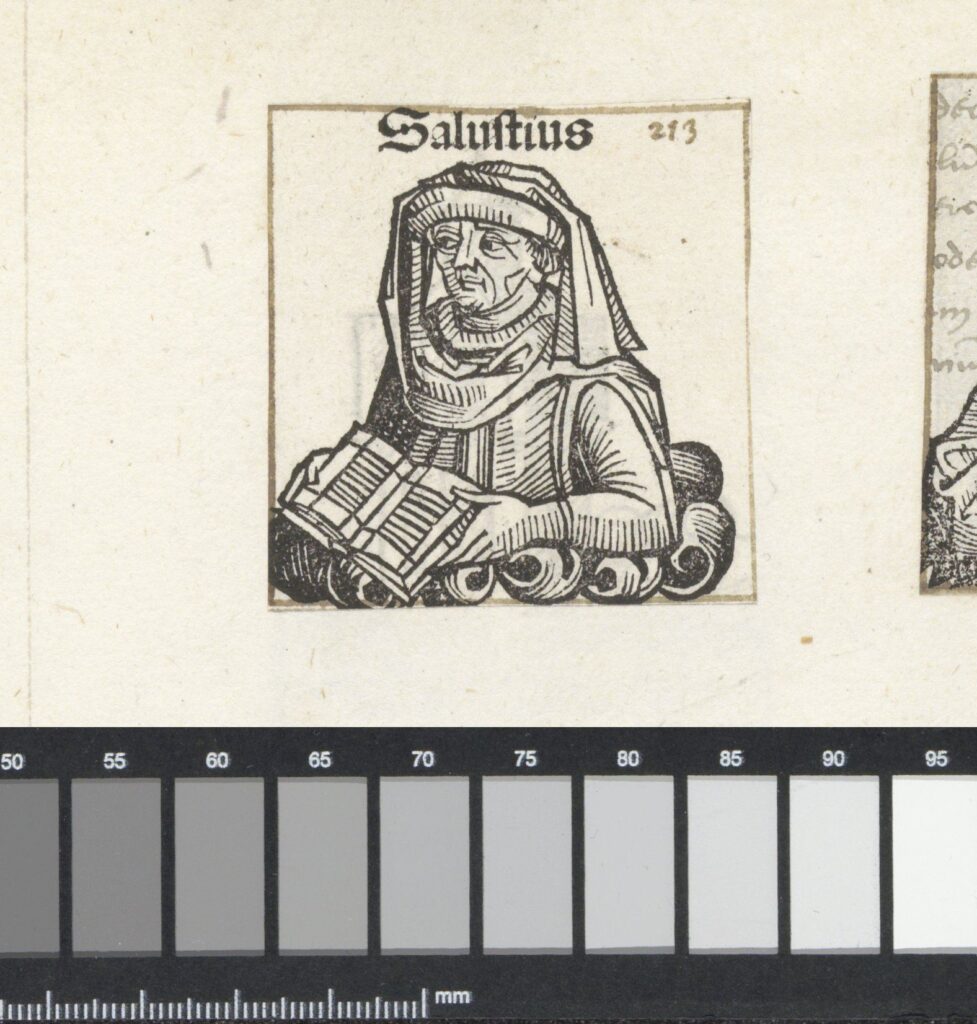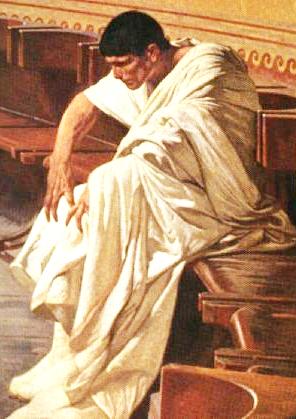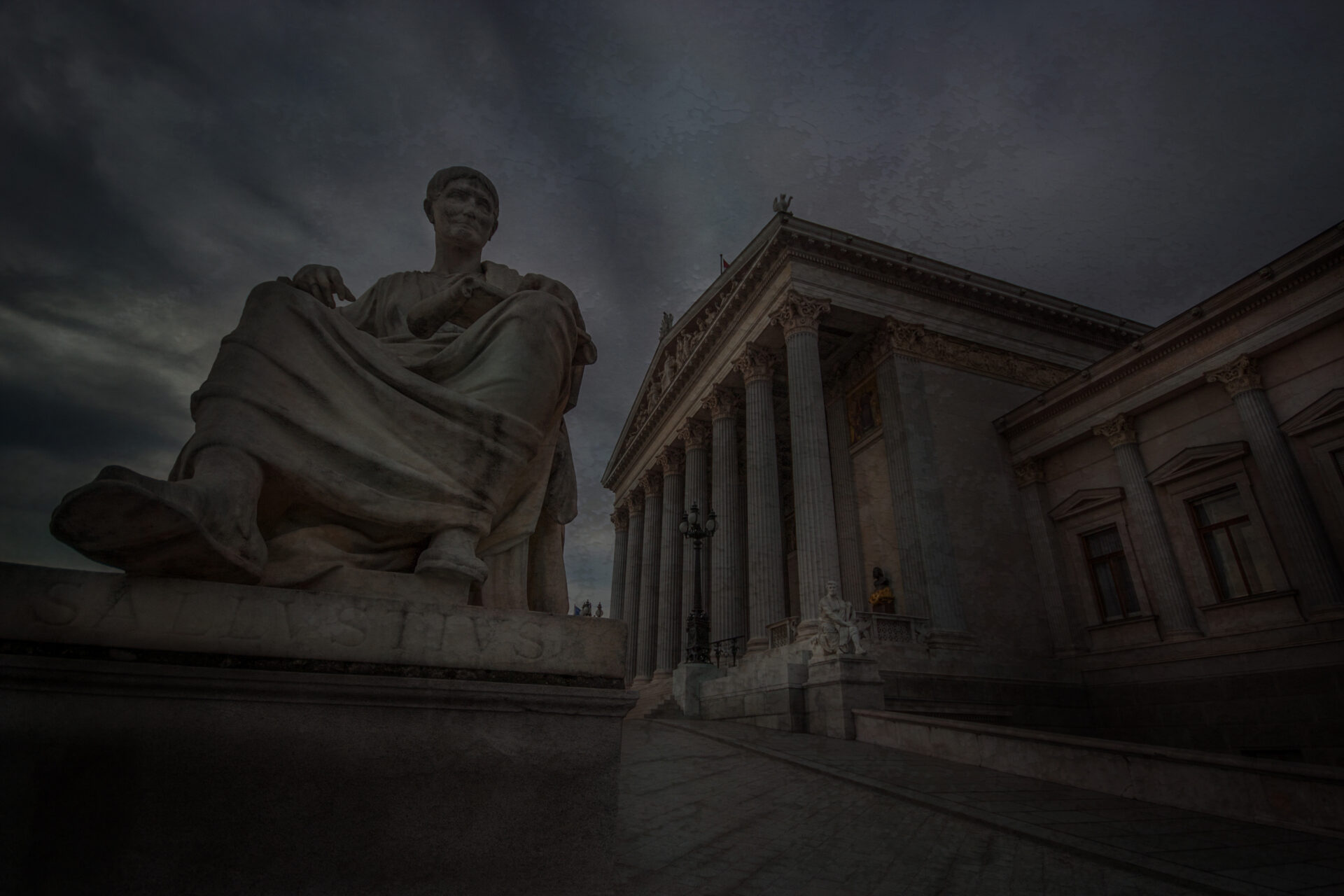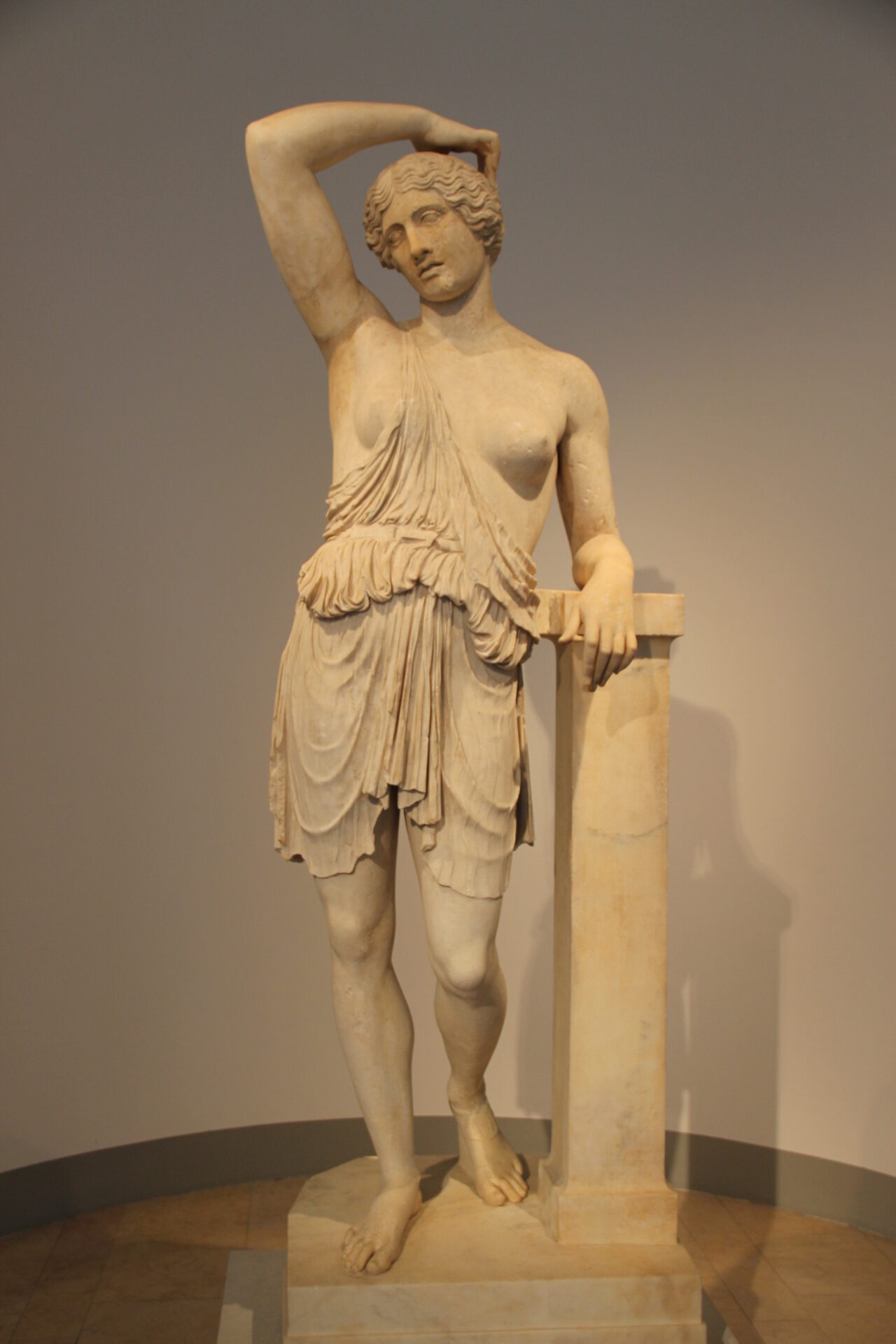In the dying days of the Roman Republic, as civil wars tore the state apart and the old values decayed under the weight of ambition and greed, one voice rose with a chilling clarity. That voice belonged to Gaius Sallustius Crispus, more commonly known as Sallust. A soldier, senator, and staunch partisan of Julius Caesar, Sallust would become one of Rome’s greatest historians, remembered not for the length of his histories but for their fire and insight. Through his compact yet powerful works, The War Against Jugurtha and The Conspiracy of Catiline, Sallust dissected the soul of a crumbling republic with a precision that still stings.

The Life of Sallust
Sallust was born around 86 BC in the town of Amiternum, in the Sabine hills of central Italy. Unlike many other Roman historians, he was not from a senatorial family but from the equestrian order, just like Suetonius. This outsider status may have contributed to the sharpness of his critiques and his awareness of class and power dynamics in Rome. Although the equestrian order had its advantages, it wasn’t as near as priviliged like the senatorial order.
His political career began in earnest when he was elected tribune of the plebs in 52 BC, a critical year in Roman politics marked by the death of Clodius and the rise of Pompey as sole consul. Sallust aligned himself with Julius Caesar during the chaos of the civil wars. In 50 BC, he was expelled from the Senate, likely due to moral charges and factional maneuvering by political opponents.
But fortunes reversed quickly. After Caesar crossed the Rubicon and launched his march on Rome, Sallust’s loyalty was rewarded. He was reinstated and later appointed as governor of Africa Nova, where he served between 46 and 45 BC. Though his tenure was marked by charges of corruption and extortion, he returned to Rome wealthy and disillusioned, retiring from politics for good. In retirement, he turned to writing history, and it is in this second part of his life that his name would be immortalized.
The War Against Jugurtha
Sallust’s Bellum Jugurthinum (The War Against Jugurtha), written in the late 40s BC, examined and described a military conflict from several decades earlier: the war waged by Rome against King Jugurtha of Numidia (112–105 BC). On the surface, it’s a military history. But beneath that, it is a biting indictment of Rome’s aristocracy, whose greed and incompetence allowed the war to drag on for years.
Jugurtha, once a Roman ally, exploited the corrupt Senate by buying off officials and delaying his punishment. Sallust paints a bleak picture of a political system where wealth and connections outweigh justice. The war only shifted in Rome’s favor when Gaius Marius, a self-made man from humble origins, took command. His admiration for Marius is obvious. Through Marius, he presents a contrast between the decaying old aristocracy and the potential for renewal. But even that renewal is uneasy; Marius himself would later become part of Rome’s violent unraveling.
The Jugurthine War is not just history—it’s a diagnosis. Sallust sees the Republic rotting from within, long before Caesar’s rise. His analysis remains one of the sharpest portraits of institutional decay in classical literature.
The Conspiracy of Catiline
Perhaps his most famous work is the Bellum Catilinae (The Conspiracy of Catiline), written earlier, around 42–41 BC. It recounts the events of 63 BC, when Lucius Sergius Catilina—Catiline—plotted a violent uprising to overthrow the Roman government.
To Sallust, Catiline was both monstrous and symbolic. A man of ambition, charm, and recklessness, Catiline is portrayed as the product of a diseased society—someone who appealed to Rome’s desperate poor and embittered veterans. The conspiracy, which was foiled by Cicero, provides Sallust with an opportunity to examine deeper truths about Rome’s soul. The historian does not spare the Senate either. While he praises Cicero’s actions in preserving the state, he portrays the Senate as ineffective, plagued by internal feuds, and slow to act. The real enemy is not just Catiline—it is the Republic’s inability to respond to threats because of its own moral failures.
His Catiline is a fascinating figure: more tragic than villainous. He reflects the desperation of an era where opportunity was shrinking and discontent simmered dangerously. Sallust turns this political drama into a timeless exploration of leadership, loyalty, and the consequences of neglecting social inequities.

Style, Purpose, and Historical Method
Sallust’s Latin prose is famously dense and archaic. He consciously rejected the flowing Ciceronian style in favor of a more pointed, old-fashioned rhythm. His use of archaic vocabulary and abrupt syntax gives his work an air of antiquity and gravity. It’s as if he were channeling the moral voice of Rome’s ancestors to speak to a corrupt present. He made deliberate use of speeches, a common technique in ancient historiography, but in Sallust’s case, they serve more than stylistic flair. These imagined or paraphrased addresses let him explore characters’ motivations and the moral stakes of political decisions. Unlike Livy or Tacitus, Sallust is sparing with detail but rich in reflection.
He was not impartial—nor did he try to be. He saw his work as a moral mission. His aim was to expose the disease beneath the surface of Roman grandeur. The consistent theme is decline: from the frugality and discipline of earlier generations to the greed and self-interest of his own time. In that regard, Sallust shares more with modern investigative journalists than traditional historians. He was writing to provoke, to unsettle, and to warn.

Legacy and Conclusion
Though his historical output was limited—only fragments of his Histories survive beyond the Catiline and Jugurtha monographs—Sallust’s impact was lasting.
Later Roman historians, especially Tacitus, borrowed heavily from Sallust’s tone and technique. His concise style, psychological insight, and obsession with moral decay helped shape the Roman historical tradition. In the Renaissance, figures like Machiavelli and Guicciardini drew inspiration from Sallust’s political realism. His work was studied in medieval monasteries and modern universities alike, often seen as a masterclass in both language and civic critique.

He also left a more literal legacy: the famed Horti Sallustiani (Gardens of Sallust), a lavish villa and park in Rome, built with the wealth he amassed in Africa. Although the way he amassed that wealth is likely controversial, and in contrast with his writing. These gardens became imperial property after Sallust’s death in 35 BC and would be used by emperors from Tiberius to Aurelian. But more than gardens or fragments, Sallust left behind a lens through which generations have viewed the collapse of republics and the corrupting force of power. In an age when democracies grapple with internal tensions, economic inequality, and failing trust in institutions, Sallust’s voice sounds eerily familiar.
Reading Sallust is not just reading history. It’s confronting the uncomfortable truth that the seeds of political collapse are often sown not by enemies, but by the decay of values within.
Hello, my name is Vladimir, and I am a part of the Roman-empire writing team.
I am a historian, and history is an integral part of my life.
To be honest, while I was in school, I didn’t like history so how did I end up studying it? Well, for that, I have to thank history-based strategy PC games. Thank you so much, Europa Universalis IV, and thank you, Medieval Total War.
Since games made me fall in love with history, I completed bachelor studies at Filozofski Fakultet Niš, a part of the University of Niš. My bachelor’s thesis was about Julis Caesar. Soon, I completed my master’s studies at the same university.
For years now, I have been working as a teacher in a local elementary school, but my passion for writing isn’t fulfilled, so I decided to pursue that ambition online. There were a few gigs, but most of them were not history-related.
Then I stumbled upon roman-empire.com, and now I am a part of something bigger. No, I am not a part of the ancient Roman Empire but of a creative writing team where I have the freedom to write about whatever I want. Yes, even about Star Wars. Stay tuned for that.
Anyway, I am better at writing about Rome than writing about me. But if you would like to contact me for any reason, you can do it at contact@roman-empire.net. Except for negative reviews, of course. 😀
Kind regards,
Vladimir
